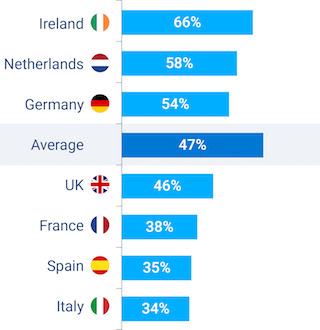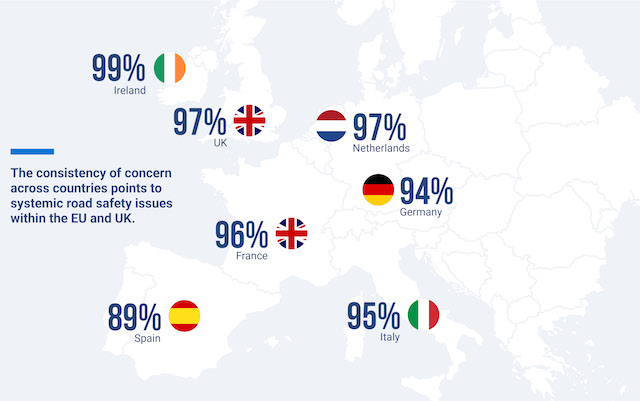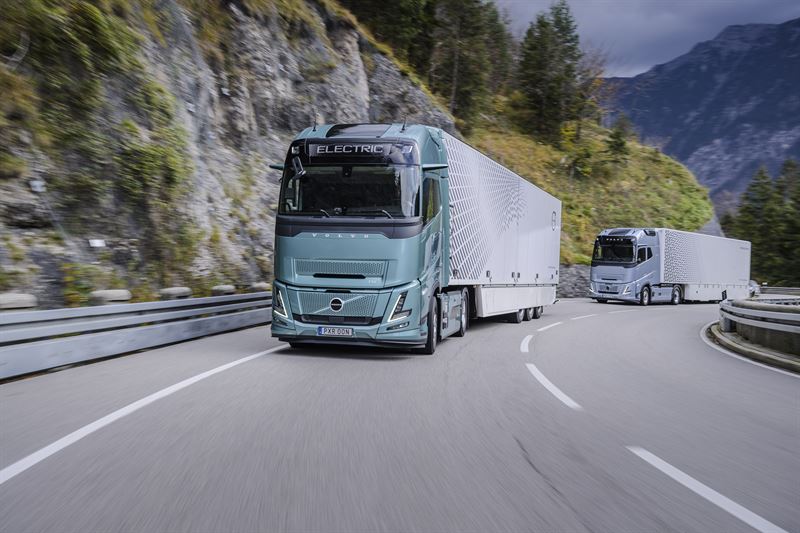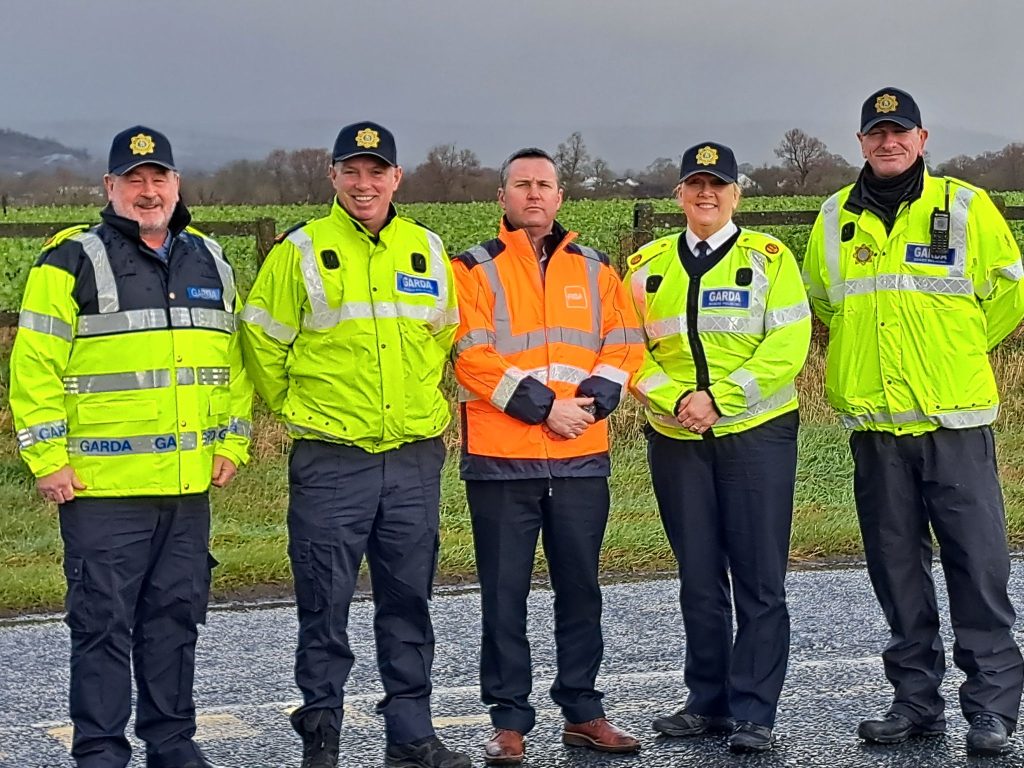Almost all Irish truck and van vehicle drivers (99%) believe the risk of driving accidents has increased in the last five years.
Geotab surveyed 3,501 commercial vehicle drivers across France, Germany, Ireland, Italy, the Netherlands, Spain and the UK in April.
Nearly all of them (95%) consider the risk of accidents to have increased over the last five years, with Ireland’s 99% topping the poll. These are the findings of a new pan-European survey*, titled “The Unseen Toll: Driver Stress and Road Safety”, commissioned by Geotab, the global leader in connected vehicle and asset solutions.
 Worryingly, almost three quarters (73%) of Irish commercial drivers believe stress is a contributing factor to increased dangers on road. In total, half of the drivers across Europe surveyed (50% average) admitted feeling the need to regularly break speed limits to complete jobs on time. This was reported most often in Ireland (64%), the Netherlands (62%), and Germany (59%). Furthermore, approximately three quarters (74%) of Irish drivers stated that excessive traffic or roadworks makes completing their jobs more difficult.
Worryingly, almost three quarters (73%) of Irish commercial drivers believe stress is a contributing factor to increased dangers on road. In total, half of the drivers across Europe surveyed (50% average) admitted feeling the need to regularly break speed limits to complete jobs on time. This was reported most often in Ireland (64%), the Netherlands (62%), and Germany (59%). Furthermore, approximately three quarters (74%) of Irish drivers stated that excessive traffic or roadworks makes completing their jobs more difficult.
When asked about the most regularly noticed dangerous behaviours, the most common risks noted by Irish commercial vehicle drivers both related to e-bikes and e-scooters. The top concern (38%) was e-bikes and e-scooters being ridden too fast. Cyclists, e-bikes, or e-scooters breaking red lights (38%) ranked as the second highest concern, followed closely by pedestrians being unaware of nearby vehicles (37%) and other drivers using their mobile phones at the wheel (36%). This concern is echoed by the Road Safety Authority, which recently reported that one in four regular e-scooter users in Ireland has been involved in a collision, underscoring the growing risks these vehicles present to all road users.
Against the backdrop of increased work pressures, many drivers feel unsupported by their employers. Over half (55%) of European commercial drivers feel uncomfortable approaching their employer for support with stress and other mental health concerns, rising to 66% in Ireland and 60% in Germany. This is also reflected in over a third of all drivers (37%) reporting their employer offering only a low or non-existent level of support, notably in Spain (50%) and Italy (44%). The effects of these pressures are clear: Nearly half of respondents (47%) have considered quitting their jobs in the past 12 months, rising to 66% in Ireland and 58% in the Netherlands. This comes at a time when more than 200,000 truck driving jobs are unfilled in Europe, and that number is likely to rise to 745,000 by 2028, according to McKinsey.
 “These results are a stark reminder of the pressures faced by commercial drivers, impacting road safety for everyone. Europe’s economy relies heavily on commercial vehicle drivers, yet stress is pushing them out of the industry and putting road safety at risk,” said Edward Kulperger, Senior Vice President, Geotab EMEA.
“These results are a stark reminder of the pressures faced by commercial drivers, impacting road safety for everyone. Europe’s economy relies heavily on commercial vehicle drivers, yet stress is pushing them out of the industry and putting road safety at risk,” said Edward Kulperger, Senior Vice President, Geotab EMEA.
“Drivers face significant work-related stress, observe dangerous behaviours daily, and are often pressured by schedules, yet many feel unsupported or uncomfortable seeking help. These challenges aren’t unique to Europe, echoing findings from our recent North American driver survey. With nearly half thinking about quitting – and that amidst a driver shortage – it is crucial for employers to provide better mental health support now.”
Using technology for good
Looking forward, over two-thirds (69%) of drivers support adopting technology to enhance driving performance, with Irish drivers (73%) ranking third behind Spain (80%) and Italy (77%). Geotab’s findings clearly illustrate the necessity for increased investment in driver support, stress management, and promoting a culture of safety.
“As an industry, we must prioritise driver wellbeing, employing data and technology not just for efficiency, but to proactively create safer, less stressful environments. A real commitment is needed to keep roads safe and supply chains moving,” Kulperger added.
Addressing these challenges is crucial for driver wellbeing and fleet efficiency. Prioritising safety
helps reduce accidents, lowering insurance, repair, and downtime costs. Implementing robust safety programmes, supported by telematics data and cutting-edge AI models, allows proactive interventions. By pinpointing risks, coaching safer behaviours, and monitoring wellbeing indicators, fleets can enhance safety, improve productivity, and achieve significant cost savings, leveraging the technology drivers are willing to adopt.
Full research findings are available via: https://insights.geotab.com/view/279177405/



